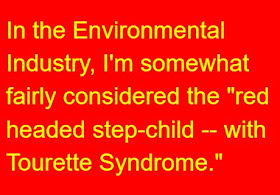While I'm a big supporter of the Right To Repair legislation, a friend in an influential position at DEP (former hire, elevated to my former position) asked the Zoom group whether Right to Repair Legislation should be their top priority.
I'm always on my guard against "Group-Think". Here were 15-20 proponents of reuse, actively engaged in DEFENSE of repair. What did we all have in common, and how could common thought become a weakness?
In a tweet later, @WR3A (World Reuse, Repair and Recycling Association, my Twitter handle created 12 years ago) I used the words "my one qualm with #RightToRepair [as a movement] is that it is backward oriented. Trying to take back too many chess moves by planned obsolescence which were already played [successfully, by OEMs]... Each new device developed or sold is the next chess game. I recommend government procurement contracts as the opening move."
Ironically, the Right to Repair twitter advocate who responded (a friendly fire incident, if I offended) responded in a quote tweet... "Made the move to influence government buying at least 6 years ago. Have the conference badges to prove it. If only it were that easy. OEMs have made sure that the GSA won't even consider buying used equipment. If only it were that easy..."
[as if I'd dispute it? I've got them going back to 1990]
My point about Procurement isn't about government buying used equipment. It is about strategically wording FTC-backed warranty language on things the government hasn't even purchased yet. Backward Oriented, Exhibit A?




